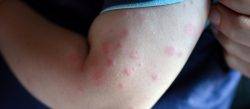How do Antihistamines Work?
What are antihistamines? Antihistamines are used by allergy sufferers to relieve allergy symptoms from seasonal and year-round allergies. What types of…
Read MorePublished on May 23, 2022

Allergy symptoms can be overwhelming. When you’re feeling congested and miserable, it can be hard to know where to start with managing your nasal allergies. Here are our tips for getting your allergies under control.
Managing your allergies involves a 3 step process:
It might be quite easy for a person to identify the allergen responsible for their symptoms, based on the timing of their symptoms, e.g. if you develop symptoms after petting a cat.
However, when symptoms are subtle or occur continuously, you may need to see a doctor to help determine the specific allergy.
If you suffer from allergies and you’re not sure what’s to blame, your doctor may recommend allergy testing. An allergy test can help you find out which specific allergen is causing your symptoms and form an important part of your treatment plan, which may include lifestyle changes, allergen avoidance and medication.
Some allergy problems, such as mild hayfever, may not need specialist treatment, as the use of an over‐the‐counter antihistamine medication may be sufficient. More serious allergies can interfere with day to day activities. A specialist can help you to prevent or minimise allergy symptoms and, by doing so, may improve your quality of life.
You should see an allergy specialist if:
Allergy testing is usually performed in cases of suspected hayfever or reactions to certain foods and insect venom. When testing for hayfever, the substances used usually include house dust mites, cat and dog dander (other animals may be included where relevant, e.g. horses), mould spores, and pollen from weeds, grasses and trees. In some cases, occupational allergens may be included if the person comes into regular contact with them during their daily work.
The most common forms of allergy testing are skin prick tests and blood tests.
Skin prick testing is a common allergy test, as it’s quick, convenient and results are usually available within 20 minutes.
Skin prick testing involves exposing the skin to different allergens and checking the area for any sign of an allergic reaction. If an allergen causes a reaction in the skin, you will experience reddening, swelling or an itchy raised bump where the substance was applied.
Blood tests can also be used to test for allergies when skin testing is not suitable, such as for people who are taking medications that may interfere with a skin test.
Once an allergen has been identified, it may be possible to avoid exposure through lifestyle modifications.
Although it may not be possible to avoid the allergens that cause symptoms altogether, there are several things a person can do to minimise the severity and frequency of their symptoms.
A number of helpful tips are listed below for people to reduce their exposure to common allergy triggers, including pollen, dust mites, mould, and animals.
If your hayfever symptoms are mild to moderate, an antihistamine medication such as Telfast® may be helpful. Antihistamines are a treatment for itchy eyes/nose, sneezing and runny nose. If symptoms persist seek advice from your healthcare provider for further treatment options.
Always read the label and follow the directions for use.
Learn about which Telfast product may be appropriate for you.
SEE THE PRODUCTS HEREMAT-AU-2102138. Nov 2021.

What are antihistamines? Antihistamines are used by allergy sufferers to relieve allergy symptoms from seasonal and year-round allergies. What types of…
Read More
How do I manage my nasal allergies? Allergy symptoms can be overwhelming. When you’re feeling congested and miserable, it can…
Read More
Hives (otherwise known as Urticaria) are characterised by circular red, raised and itchy wheals on the surface of the skin….
Read More